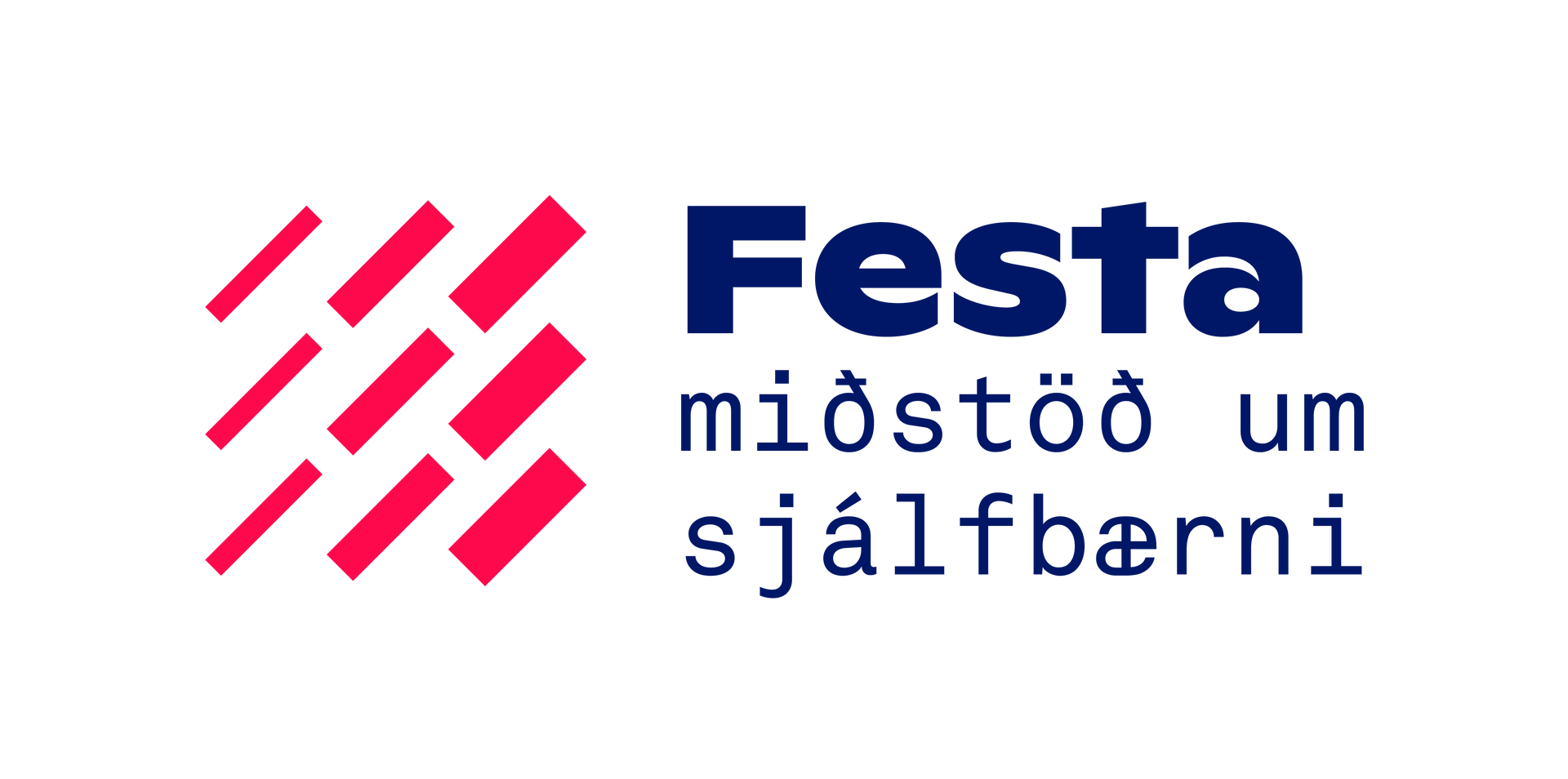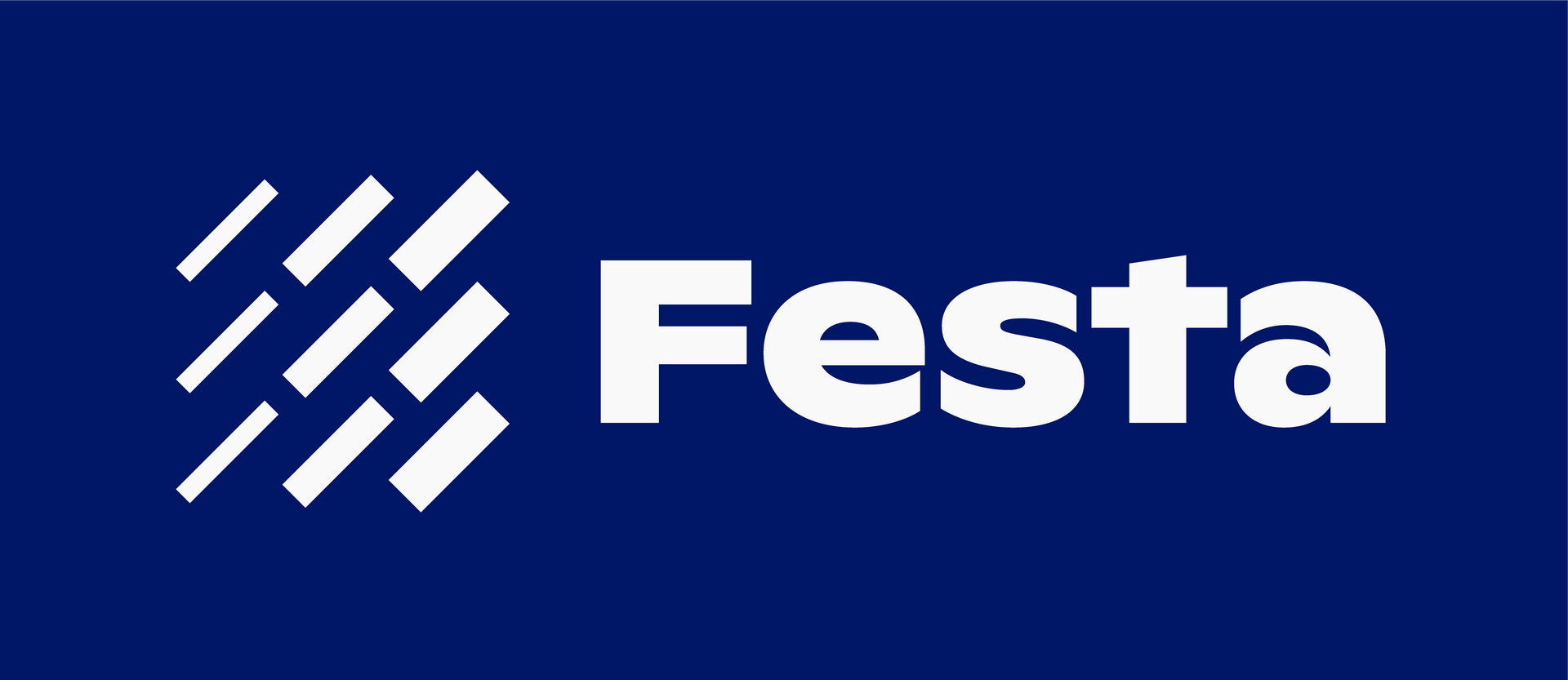Hello! This is the English version of our site, currently under construction. Please excuse any errors or glitches as we work on making things better.
Where do I start?
Guide
Where is the best place to start?
There are many different paths available to us on the journey toward sustainability. The steps are both big and small, and all of them make an impact.
Choose your path
It is important to start the journey to sustainability as soon as possible. But how is sustainability implemented? How can sustainability be implemented in the daily operations of companies and institutions?
There are different ways to go — it is important that companies and organizations find a way that suits them.
Hvar liggja styrkleikar þíns fyrirtækis, sveitafélags eða stofnunar þegar kemur að sjálfbærni? Fyrsta skrefið er að staldra við og meta það.
When it comes down to it, it can be good to look at the sustainability materiality assessment methodology.
Sometimes there is so much more to do than we realize. Then we also realized that it is possible to do so much, much better.
We at Festa welcome you and your people to discuss the first steps and how you can do even better. The opportunities are endless. Consider this an ideal opportunity to sharpen your competitive edge.
Here is only a small fraction of the devices and tools that can be used when implementing sustainability in daily operations.
Choose your path
Festa's guide to laws and disclosure
Festa climate meter and manual
UN Global Compact
GRI - international standards
AT
The world goals
UFS (ESG) leiðbeiningar kauphallar Nasdaq
Íslenskur staðall um samfélagsábyrgð
The green steps
The Swan environmental label
Fair trade products
Skylduskil á skýrslum til Landsbókasafns
Bravo Earth web site - environmental management
Climate gauge of financial companies
Project Drawdown - climate solutions
Voices of the young people
The Glasgow Financial Alliance for Net Zero
Science Based Targets Initiative
Hagkerfi hagaðila, staðlar og mælieiningar. Measuring Stakeholder Capitalism.
Viðskipti og mannréttindi, leiðarvísir . Business and Human rights Navigator
Atvinnulífið og fólk með skerta starfsgetu
Biodiversity Roadmap
For a long time, the steps that have been taken in favor of the environment at the business level have mostly been linked to the challenges of climate change. However, the focus on the protection of biological diversity is increasing, as the protection of the biosphere is one of the most urgent challenges facing humanity.
In October 2023, Festa published a biodiversity roadmap to support the Icelandic economy in tackling this important task. The directions can be accessed at the link below.
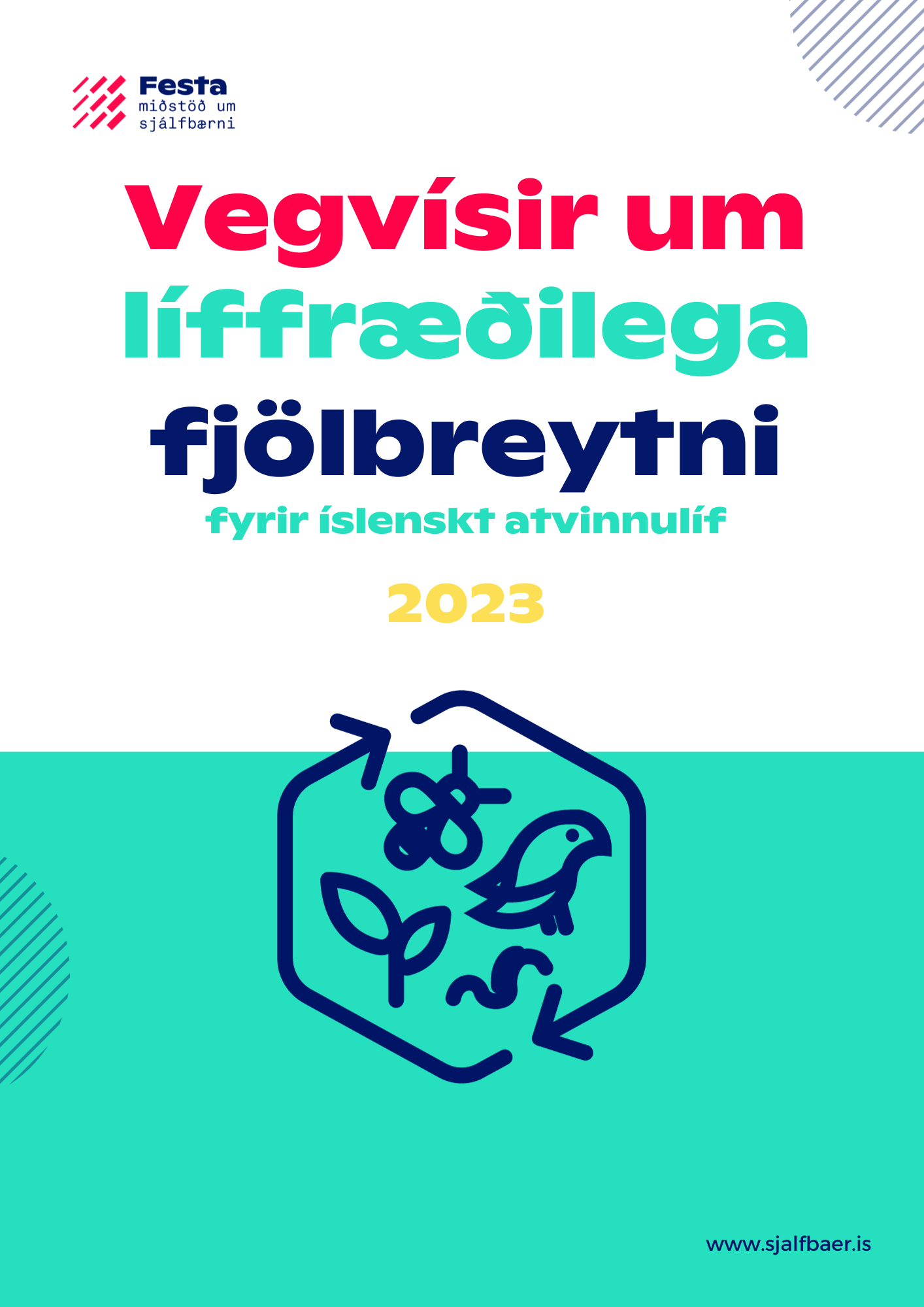
Choose your path
Festa climate meter and manual
UN Global Compact
GRI - international standards
AT
The world goals
UFS (ESG) leiðbeiningar kauphallar Nasdaq
Íslenskur staðall um samfélagsábyrgð
The green steps
The Swan environmental label
Fair trade products
Skylduskil á skýrslum til Landsbókasafns
Bravo Earth web site - environmental management
Climate gauge of financial companies
Project Drawdown - climate solutions
Voices of the young people
The Glasgow Financial Alliance for Net Zero
Science Based Targets Initiative
Hagkerfi hagaðila, staðlar og mælieiningar. Measuring Stakeholder Capitalism.
Viðskipti og mannréttindi, leiðarvísir . Business and Human rights Navigator
Atvinnulífið og fólk með skerta starfsgetu
Choose your path
It is important to start the journey to sustainability as soon as possible. But how is sustainability implemented? How can sustainability be implemented in the daily operations of companies and institutions?
There are different ways to go — it is important that companies and organizations find a way that suits them.
Hvar liggja styrkleikar þíns fyrirtækis, sveitafélags eða stofnunar þegar kemur að sjálfbærni? Fyrsta skrefið er að staldra við og meta það.
When it comes down to it, it can be good to look at the sustainability materiality assessment methodology.
Sometimes there is so much more to do than we realize. Then we also realized that it is possible to do so much, much better.
We at Festa welcome you and your people to discuss the first steps and how you can do even better. The opportunities are endless. Consider this an ideal opportunity to sharpen your competitive edge.
Here is only a small fraction of the devices and tools that can be used when implementing sustainability in daily operations.
Vegvísir um lög og upplýsingagjöf
Árið 2022 fór fram ítarleg vinna með fólki úr samfélagi Festu og tengdum aðilum.
Afrakstur vinnunnar skilar sér í vegvísi í tengslum við sjálfbærnilöggjöf Evrópusambandsins (ESB) og EES samningsins.
The guide covers innovations in legislation and methodology for sustainable business operations and responsible investments. Regulations of the European Union, bills that have been introduced regarding the implementation of EU acts in this country, as well as other practical material can be found in the roadmap. The focus is on the role of capital as a driving force in the sustainability journey of companies in the real economy.
Festa climate meter and manual
Companies can reduce their emissions of greenhouse gases and thus participate in the fight against catastrophic warming and work towards the progress of the global goal.
Aðgerðir fyrirtækja, sveitafélaga og stofnana í loftslagsmálum skipta sköpum og án þeirra er ólíklegt að þjóðir heims geti staðið við markmið Íslands að verða kolefnishlutlaust fyrir árið 2040.
Festa's climate meter is free of charge. It was designed and updated by companies and the City of Reykjavík and is in accordance with international and national standards.
The meter can be accessed in a web version at ClimatePulse.is and is extremely simple to use, and each step is accompanied by instructions related to the information that needs to be entered. The meter is accompanied by a detailed instructional video and testimonials from companies that have started their journey.
Festa's climate meter is designed especially for small and medium-sized companies that are taking their first steps in climate measures and measurements. The meter is based on internationally recognized standards and is adapted to the Icelandic environment.
Once the questions are answered, you will receive a summary report and can choose to share the results with Festa.
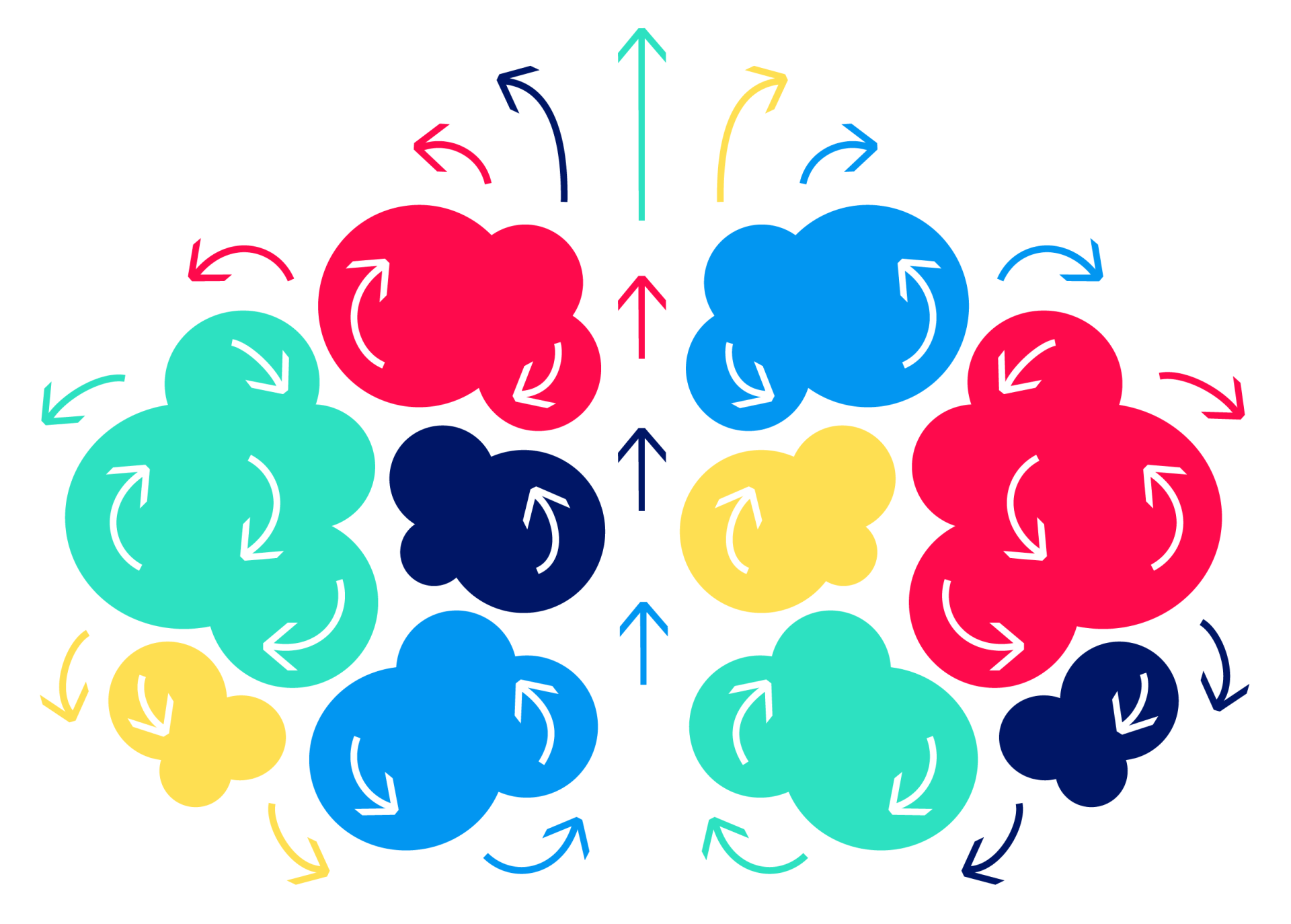
Educational material on climate action – produced by Festa for a grant from the Climate Fund
Kennslumyndband þar sem Sævar Helgi Bragason leiðir þig skref fyrir skref í gegnum notkun á Loftslagsmæli Festu. Hvaða gögn þarftu að hafa til að mæla þitt kolefnisspor og hvar nálgast þú þau?
Af hverju er mikilvægt að draga úr og mæla kolefnisspor frá rekstri og hvar byrjum við? Fræðslumyndband þar sem Festa fékk til liðs við sig sérfræðinga frá fimm ólíkum aðildarfélögum sínum sem lýsa í örfáum orðum sinni vegferð þegar kemur að því að setja sér stefnu í loftslagsmálum og mæla kolefnisspor frá rekstri.
Handbook for Small Businesses - Climate Policy and Carbon Footprint Measurement. Where do you start your journey and how do you ensure that actions are targeted and effective. A concise manual that is extremely easy to use.
All the data of the educational package and access to Festa's climate meter are open to everyone and free of charge.
UN Global Compact
The UN Global Compact is a social contract between companies and the United Nations.
Companies that become participants in the UN Global Compact make their stakeholders aware of their social policy through regular disclosure. Participants undertake to submit an annual status report (community report), which is then available on the Global Compact website.
The Global Compact is based on 10 criteria that companies set themselves to follow. The participants also commit to work towards the advancement of the United Nations' global goals.
The Global Compact Academy is a live educational platform open to participants. There you can access educational materials, courses and lessons that companies can access free of charge and share with their employees at will.
Nánari upplýsingar má nálgast á globalcompact.is.
Here you can see the Icelandic parties that are participants in the Global Compact. Festa has been participating since 2012.
Í lok árs 2022 var ákveðið að ráða svæðisstjóra UN Global
Compact á Íslandi með áformum um að auka áhrif framtaksins á Íslandi.
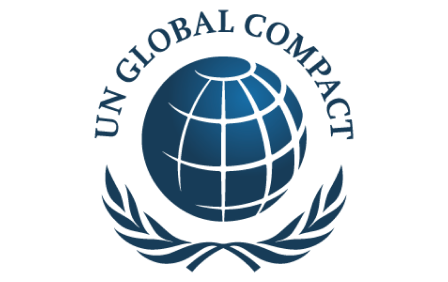
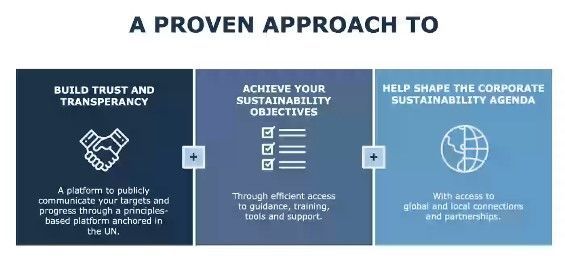
GRI - international standards
The GRI are internationally recognized standards for reporting information on social responsibility and are used in over 100 countries. 80% of the world's 250 largest companies use GRI, and the winners of the Society Report of the Year in Iceland 2018 and 2019 based their reports on GRI.
The GRI are widely considered the most comprehensive and accurate standards for tracking the economic, environmental and social impact of companies and organizations.
Those who do not have the means to publish a report that complies with all the conditions of the GRI standards can go the route of publishing a report that takes the standards into account, e. with the reference to the GRI standards. More information about what it entails can be found here: GRI 1_ Foundation 2021.pdf
Below you can access the Icelandic translation of the standards. The translation is done by the Icelandic Standards Council in consultation with Festa. ISAVIA, one of Festa's member societies, financed the updated translation (2020) as well as providing the invaluable assistance of its experts in proofreading and editing.
- Note that the GRI standards have been updated after the Icelandic translation was published and the latest update can be accessed here: GRI – Standards (globalreporting.org).
- Then there is no longer the possibility to publish a report according to two categories as before, that is: core or comprehensive.
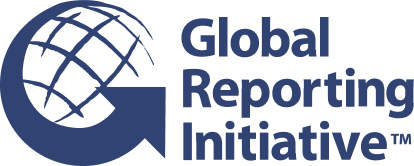
AT
Principles of Responsible Investment (PRI) are rules for responsible investments. The rules were developed by an international group of institutional investors in collaboration with the United Nations and should reflect the importance of the environment, society and governance in investors' investments.
PRI hljóðvarp – “The PRI podcast offers an insight into the world of responsible investment, with investor perspectives and discussion on a range of environmental, social and governance (ESG) topics.”
Stefnumótunartól PRI
– “The PRI proposes a five-part framework for investors that are seeking to understand the real-world outcomes of their investments, and to shape those outcomes in line with the SDGs. “

The world goals
Heimsmarkmiðin eru framkvæmdaáætlun í þágu mannkyns, jarðar og hagsældar. Með henni er leitast við að stuðla að friði um gjörvallan heim og þar með auknu frelsi. Heimsmarkmiðin eru 17 talsins og mælt er með því að fyrirtæki og stofnanir innleiða þau í starfsemi sína. Hægt er að velja sér eitt markmið eða fleiri, en öll tengjast þau innbyrðis.
Festa makes an effort to connect all its projects with the progress of the global goals.
Hér má nálgast upplýsingar og tengingar við innleiðingar tól og tæki tengd heimsmarkmiðunum.

UFS (ESG) leiðbeiningar kauphallar Nasdaq
The Nasdaq stock exchanges in the Nordic countries have published joint guidelines for companies on the publication of information on sustainability.
These factors are environmental issues, social factors and governance or ESG (environmental, social, governance).
The guidelines are intended to assist companies to disclose the information in a clear and accessible manner for investors and other interested parties.
The translation and publication of the UFS guidelines is a joint project of Festa, the Icelandic Chamber of Commerce, Nasdaq, IcelandSIF and the Icelandic Standards Council.
Hringrásarhagkerfið
Línuleg hagkerfi og viðskiptamódel þeim tengdum eru að færast yfir í hringrásarhagkerfi.
Let's move away from producing and providing services in a linear model and move to a cycle where repair, reuse, remanufacturing and recycling are considered.
- The Ellen Macarthur Foundation Educational Center is one of the leaders in the world when it comes to conducting research and publishing educational material about the circular economy. What is the circular economy? Here, The Ellen Macarthur Foundation answers it in words and pictures.
Festa plays the role of connecting Icelandic parties when it comes to the Nordic circular cooperation platform Nordic Circular Hotspot.
On the Nordic Circular Hotspot website, you can find information about the various events organized by the organization. In the spring of 2021, the organization opened the Nordic Circular Arena, an electronic walking platform and network, where those interested can access education about the Nordic circular and connect with people who are on the same journey.
_____________________________________
Nýr ISO staðall um hringrásarhagkerfið kom út í júlí 2023
This is the first standard on the circular economy. You can learn more about it at the link below ISO/TC 323
Toolkit – implementation and strategy
A broad Nordic cooperation project, CIRCit, developed a toolbox for Nordic companies to pave the way for circularity in operations. This toolbox can be accessed here, but it consists of workbooks and policy documents that are divided into six different components.
______________________________________
The circular economy and the construction industry
Green building has compiled interesting material about the circular economy and the construction industry, which can be accessed here.
Grænni has also published a detailed brochure on the subject in collaboration with the Civil Engineering Foundation, which can be accessed here.
_____________________________________________________
We recommend these circular economy guides and resources:
At the beginning of 2021, Nordic Innovation published a detailed manual on the implementation of the circular economy - The Nordic Circular Economy Playbook. The manual is in English and is accompanied by detailed instructional videos.
“Do you want to drive circular change for your business? This playbook and supporting tools will provide you with in-depth understanding on how to achieve circular advantage for your company and business.
The Nordic Circular Economy Playbook can be leveraged by companies that want to better meet customer expectations and deliver customer outcomes. It is for you that wants to enable outcome-oriented solutions and new levels of efficiency through technology and digitalization. It will help you improve resource utilization and mitigate risk from regulatory, investor and societal pressures.”
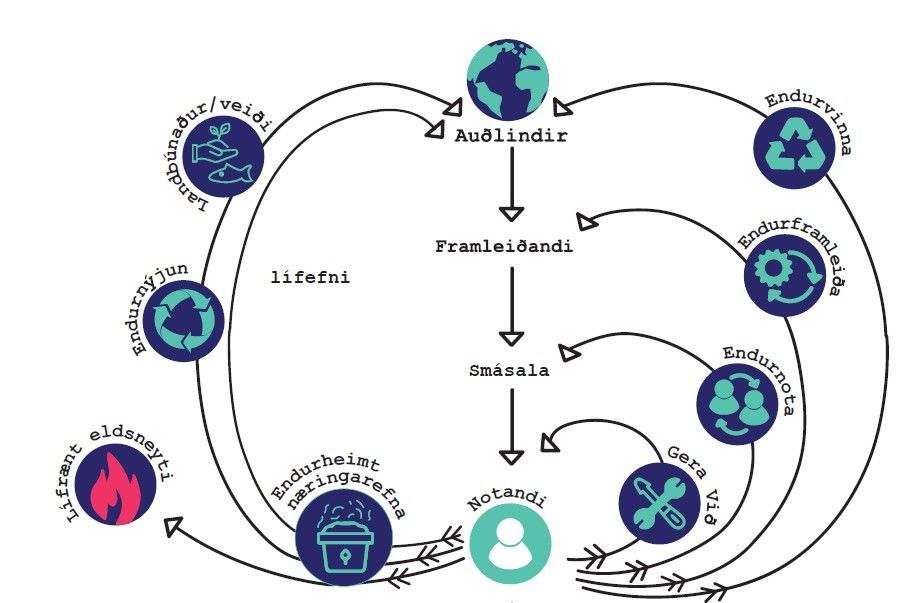
Íslenskur staðall um samfélagsábyrgð
ÍST ISO 26000 provides guidance on the principles of social responsibility. The standard is not a certification standard, but a guideline. He emphasizes the importance of success and performance improvement in terms of social responsibility.
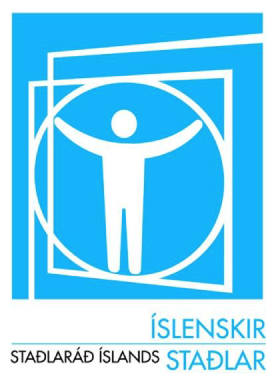
The green steps
Green steps in state management is an incentive system for all progressive and responsible state institutions.
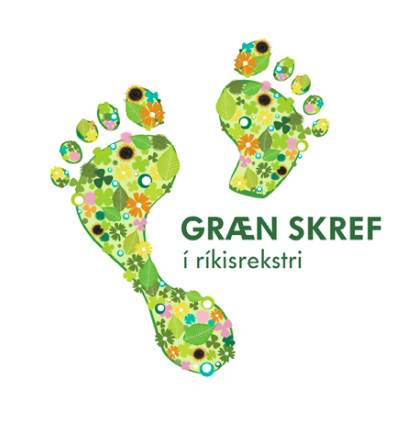
The Swan environmental label
The swan is the official eco-label of the Nordic countries, which covers the entire life cycle of products and services. A Swan-certified product is better for the environment and health.
Swan certification is an easy way to communicate a company's environmental activities and sends a clear message to consumers that the company works systematically to reduce the environmental impact throughout the product's life cycle. The Swan seal is a reliable certification that 88% of Icelanders know.

Fair trade products
Fair Trade is a certification that confirms that a product is produced in an ethical and fair way - without harmful effects on workers. Also that they receive a fair wage for their work.
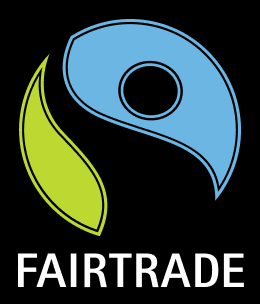
Skylduskil á skýrslum til Landsbókasafns
Bravo Earth web site - environmental management
The web system BravoEarth makes it easier for companies and organizations to implement environmental and climate policy and thus work towards increased sustainability.
In BravoEarth there is a ready-made bank with defined projects that companies and organizations can adapt to their activities. Instructions on what needs to be done in categories such as transport, waste, electricity and water. The projects are based on Green steps from the Environment Agency.
Climate gauge of financial companies
Project Drawdown - climate solutions
Here you can access the solutions that have been compiled there by Project Drawdown.
Project Drawdown conducts an ongoing review and analysis of climate solutions—the practices and technologies that can stem and begin to reduce the excess of greenhouse gases in our atmosphere. Our work shows the world can reach Drawdown by mid-century, if we make the best use of all existing climate solutions. Certainly, more solutions are needed and emerging, but there is no reason—or time—to wait on innovation. Now is better than new, and society is well equipped for transformation today.
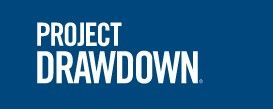
Voices of the young people
Í lok árs 2020 framkvæmdi Festa hagaðila-greiningu þar sem útgangspunkturinn var: Hvað telja ungmenna (16-30 ára) mikilvægt þegar kemur að sjálfbærni vegferð íslenskra fyrirtækja?
Interviews were conducted with a diverse group of young people, most of whom are in charge or on the boards of different youth associations or who work in the field of sustainability in another way. Questions were asked that both concern them as consumers and as future employees.
Niðurstöður greiningarinnar má nálgast hér – Report_young-voice-for-sustainbility-in-the-private-sector.pdf (samfelagsabyrgd.is)
The Glasgow Financial Alliance for Net Zero
A comprehensive publication of The Glasgow Financial Alliance for Net Zero partnership launched in the run-up to COP26.
There is an alliance of over 450 large investors, in 45 countries, who manage over 130,000 billion US dollars.
- articulation of commitments in climate-heavy production sectors, practical ways for investors to work with the 'real economy' and ways to develop portfolios towards carbon neutrality.
Finally, a call was made to the G20 countries for broad and immediate action.

Science Based Targets Initiative
The Science Based Targets initiative (SBTi) is a collaboration of several leading international actors in the field of climate issues.
The guidelines are based, as the name suggests, on a scientific basis. There are already over 6000 companies cooperating with SBTi.
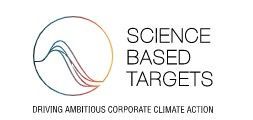
Hagkerfi hagaðila, staðlar og mælieiningar. Measuring Stakeholder Capitalism.
The World Economic Forum, in collaboration with Deloitte, EY, KPMG and PwC, has published a white paper that summarizes 56 harmonized standards and metrics and disclosures related to disclosure. in sustainability.
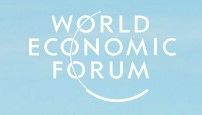
Viðskipti og mannréttindi, leiðarvísir . Business and Human rights Navigator
The United Nations Global Compact has put together a digital education and guide for businesses: the Business & Human Rights Navigator to help businesses better understand the impact their activities can have on human rights and value chains.
The content is simple in presentation and provides companies with clear expert guidance, risk analyzes by business, detailed analyzes of the main human rights issues, guidelines regarding due diligence, definitions of terms and useful stories from companies that have dealt with human rights issues responsibly.

Atvinnulífið og fólk með skerta starfsgetu
Companies and institutions can use various ways to support the employment of persons with reduced work capacity. Here, it is important to look both at designing jobs that are suitable for people with reduced working capacity and at offering a variety of part-time jobs.
Provisions in the law on equal treatment outside the labor market entered into force on July 13, 2022 and prohibit, among other things, discrimination on the basis of disability in connection with the purchase of goods and services and advertising. Inadequate appropriate accommodation for disabled people is also unlawful discrimination under the Act.
Nokkrar leiðir sem líta má til:
- Virk - Vocational Rehabilitation Fund - Vocational Rehabilitation offers a wide range of assistance when it comes to hiring individuals with reduced work capacity. Virk supports all those who temporarily drop out of the labor market when it comes to returning to work. it is a proven methodology that has yielded good results when it comes to helping individuals enter the labor market. More information can be found here Looking to the future: IPS – Individual placement and support | VIRK Vocational Rehabilitation Fund. The contact person for IPS at Virk is Anna Lóa Ólafsdóttir, annaloa@virk.is.
- The Ás Foundation has recently launched the project Project Search, which aims to pave the way for young disabled people to enter the labor market. There is an emphasis on internships, where a young person enters a company as an intern for a 9-month period and takes his first steps in the labor market after finishing high school. More about the start of the project in Iceland - link: Ás styrttarfélag (styrttarfelag.is) More about Project Search, but the project originates in the USA: link: Home – Project SEARCH Project contact: Valgerður Unnarsdóttir, valgerdur@styrktarfelagid.is
- Þroskahjálp og Öryrkjabandalagið. Öflug hagsmunasamtök sem búa yfir mikill þekkingu um málefnið og bjóða fram aðstoð til fyrirtækja.
- The Norwegian Labor and Employment Agency welcomes persons with reduced working capacity and supports them in finding suitable jobs. Companies and organizations can therefore mark the jobs that they advertise specifically for them. Contact for the case category: Laufey Gunnlaugsdóttir, head of the Department of Counseling and Employment Services at the Swedish Employment Agency
- Alfreð. Þar mun verða hægt að setja sérstaklega inn störf fyrir einstaklinga með skerta starfgetu sem þá verða merkt flokkunum “Allir með”.
Viðskipti og mannréttindi, leiðarvísir . Business and Human rights Navigator
The United Nations Global Compact has put together a digital education and guide for businesses: the Business & Human Rights Navigator to help businesses better understand the impact their activities can have on human rights and value chains.
The content is simple in presentation and provides companies with clear expert guidance, risk analyzes by business, detailed analyzes of the main human rights issues, guidelines regarding due diligence, definitions of terms and useful stories from companies that have dealt with human rights issues responsibly.




